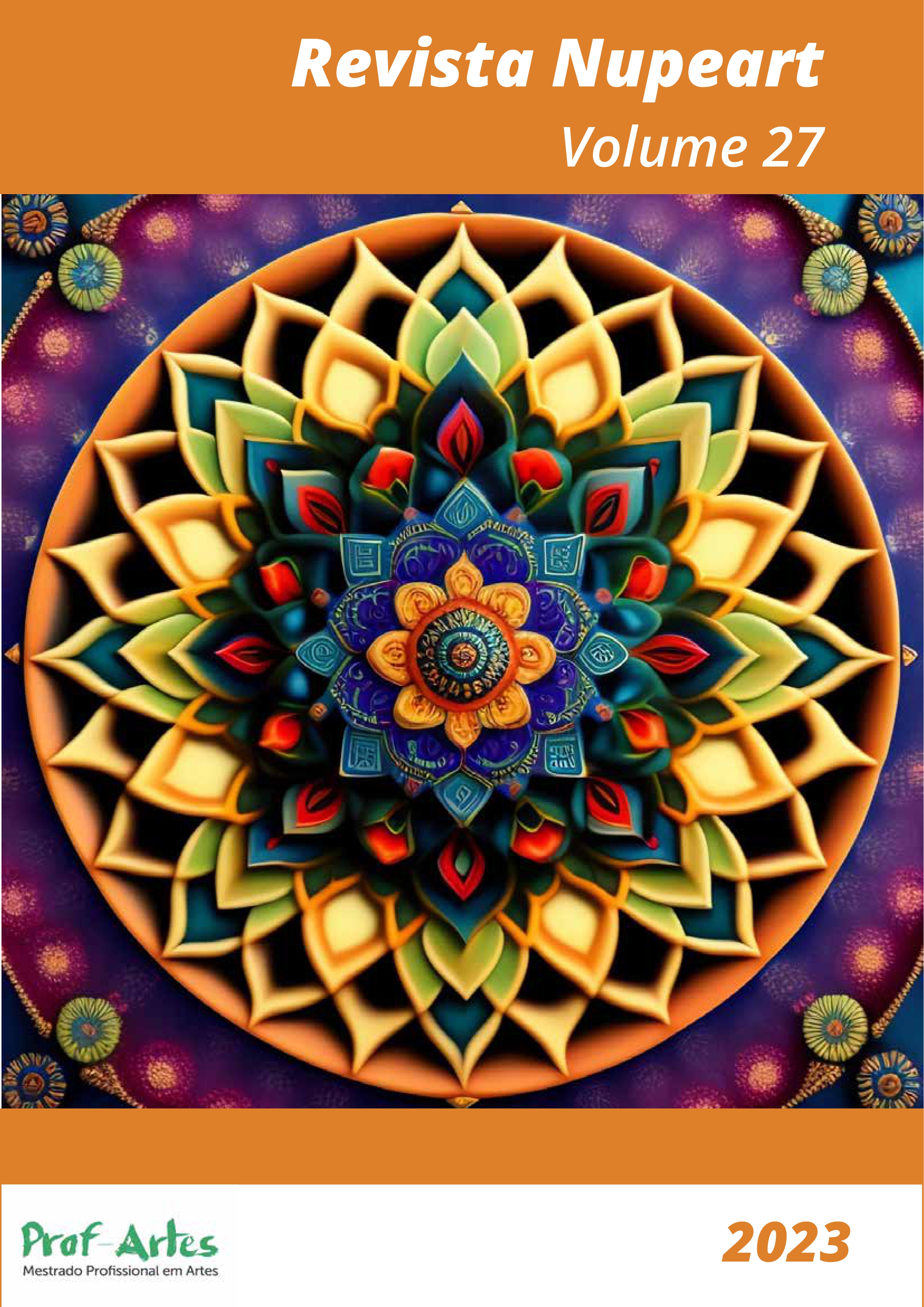Dance, equality and diversity: "professing" in contemporary times
DOI:
https://doi.org/10.5965/235809252712023e4446Keywords:
dance teaching, diversity, equality, arts teaching methodologyAbstract
The teaching of dance, as a methodology for teaching body
studies for teaching the arts, can break with colonial structural
logic. The pedagogy of the oppressed and the “bixa” ethics are
adhered to, concomitantly, as beacons of the praxis of the artistteacher, understood as being in a constant process of updating
their practices – methodological, pedagogical, didactic and
artistic – through a neologism : “professendo” (being a professor).
Unconcluded, the professor seeks, through reflection on his
practices, to abolish these logics that materialize in educational
processes that deal with authoritarianism, adoption of universal
models, contents taught in a banking education mode and
hierarchical relations, both in the choice of contents and in the
verticality of treatment between educator-student. The premise
is that a colonial logic that structures dance teaching nowadays
deals mainly with the notion that the educator knows everything
and the student knows nothing, emptying the creative power and
the full development of the subject as a critical citizen through
silencing discipline. It is indicated that dance professionals in the
country are (in)trained in these structuring colonial logics present
in dance teaching, especially in classical ballet. A methodological
and content proposal for teaching planned dance as a practice of
freedom is presented. The counterpoint that breaks with these
logics presupposes dialogic acts in the practices of the artistteacher - a “professendo” (being a professor), - who adheres
to a project of search for equality and inclusion of subjects in
education and art.
Downloads
References
ALMEIDA NETO, A. M. Appalachian Spring: política e poder na dança. Dissertação (mestrado em dança) – Programa de Pós-graduação em Dança, Escola de Dança, Universidade Federal da Bahia. Salvador, 125 p. 2009.
ALTHUSSER, L. Ideologia e aparelhos ideológicos do Estado: notas para uma investigação. In: ZIZEK, Slavoj (Org.). Um mapa da ideologia. Rio de Janeiro: Contraponto, 1996. p. 105-142.
BANNES, S. Democracy ́s body: Judson Dance Theater 1962- 1964. New York: Duke University Press Books, 1993.
BLOM, L. A.; CHAPLIN, L. T. The intimate act of choreography. Pittsburgh: University of Pittsburgh Press, 1982.
FREIRE, P. Pedagogia do oprimido. 15a ed. Rio de Janeiro: Paz e Terra, 1983.
LABAN, R. Dança educativa moderna. São Paulo: Ícone, 1990.
LOUPPE, L. Poética da dança contemporânea. Lisboa: Orfeu Negro, 2012.
MARQUES, I. A. Ensino da dança hoje: textos e contextos. São Paulo: Cortez, 1999.
MORAES, J. Sobre coreografia em roteiro. Moringa, Revista do Departamento de Artes Cênicas da UFPB, v. 6 n. 2, p. 11-22, jul/ dez 2015. Disponível em: https://periodicos.ufpb.br/index.php/ moringa/article/view/27322/14686 . Acesso em: 09 jan. 2023.
MOREIRA, M. A. A teoria da aprendizagem significativa e sua implementação em sala de aula. Brasília: Editora Universidade de Brasília, 2006.
RANCIÈRE, J. O mestre ignorante: cinco lições sobre a emanci- pação intelectual. Belo Horizonte: Autêntica, 2002.
TOMAZZONI, A. Dançando e aprendendo a ser: estratégias de subjetivação nos manuais de dança. Idança.txt. V. 4. Agosto, 2011. p. 10-29. Disponível em: <https://issuu.com/www.idanca. net/docs/idancatxt_vol4_single> . Acesso em 09 jan.2023.
VIDARTE, P. Ética bixa: proclamações libertárias para uma mili- tância LGBTQ. São Paulo: N-1 Edições, 2019.
Downloads
Published
How to Cite
Issue
Section
License
Copyright (c) 2023 Revista NUPEART

This work is licensed under a Creative Commons Attribution 4.0 International License.
Os autores cedem os direitos sobre suas obras a Revista NUPEART para a publicação dos originais baixo uma licença Creative Commons Atribuição 4.0 Internacional.
Esta revista, seguindo as recomendações do movimento de Acesso Aberto, proporciona acesso público a todo seu conteúdo, seguindo o princípio de que tornar gratuito o acesso a pesquisas gera um maior intercâmbio global de conhecimento.

